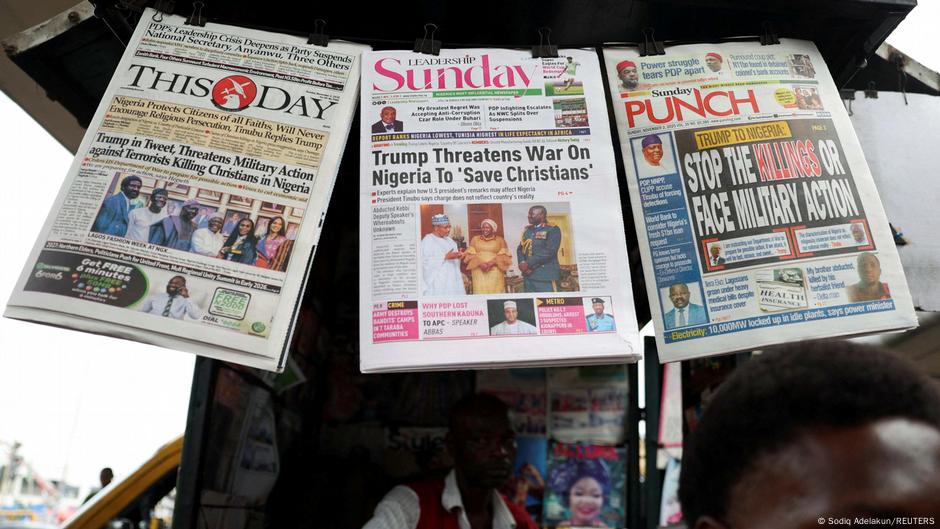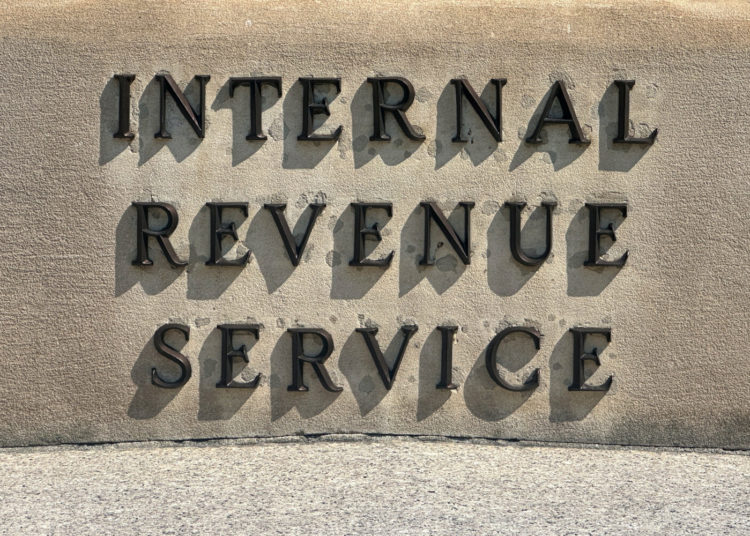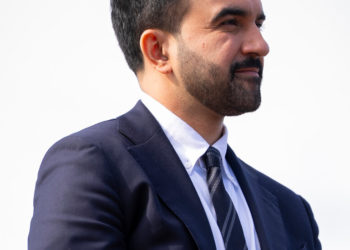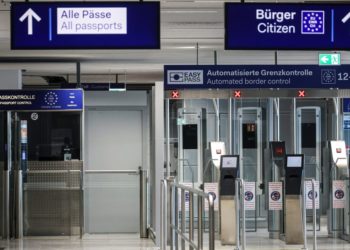The Nigerian government on Wednesday rejected the United States’ designation of as “a country of particular concern” due to alleged violations of religious freedom, claiming that the designation was based on misinformation and inaccurate data.
On Friday, US President announced his decision to designate Nigeria as a country of particular concern due to the killing of Christians by radical Islamists. This State Department classification is reserved for countries that violate religious freedom.
Later in the weekend, Trump said he had asked the Department of Defense to prepare for potential “fast” did not crack down on the killing of Christians. His rhetoric has put a strain on the two countries’ diplomatic relationship.
“Recent external claims suggesting systemic religious persecution in Nigeria are unfounded,” said Foreign Ministry Permanent Secretary Dunoma Umar Ahmed, addressing foreign diplomats at a briefing in the capital city of Abuja on Wednesday.
It was unclear whether the US ambassador was present.
“The state continues to wage a comprehensive counter-terrorism campaign against groups that target Nigerians of all faiths,” Ahmed said, adding that US rhetoric had been “disparaging” and that “dialogue and cooperation” should “remain the standard in engagement between and among sovereign states.”
While visiting Berlin on Tuesday, Nigerian Foreign Minister Yusuf Tuggar defended his country’s commitment to protecting religious freedom, of religious intolerance in Nigeria.
Nigeria wants to cooperate with US to eliminate terrorism
Meanwhile, Information Minister Mohammed Idris said at a press briefing that Trump’s threats of military action were unwarranted and misrepresented Nigeria’s complex security challenges.
“Any narrative suggesting that the Nigerian state is failing to take action against religious attacks is based on misinformation or faulty data,” Idris said.
He also said that since taking office in May 2023, President Bola Tinubu’s government has made significant progress in tackling terrorism.
“The government of Nigeria remains open and willing to work closely with the government of the , other friendly nations and partners, to achieve our shared goal, the complete elimination of terrorism on Nigerian soil,” Idris said.
He stressed that terrorism affects both Christians and Muslims, adding that the Nigerian government is committed to ending extremist violence through military action, regional cooperation, and dialogue with international partners.
Islamist insurgency and banditry plague the country
According to UN estimates, the long-running jihadist insurgency in northeastern Nigeria, led by and Islamic State-affiliated militants, has left more than 40,000 people dead and displaced approximately two million.
In addition to the jihadist insurgency, Nigeria is also facing “bandit” gangs in the northwest that carry out kidnappings, raid villages, and commit murders.
Nigeria is home to more than 200 ethnic groups that largely practice Christianity or Islam, with some also following traditional religions. While the country has a , it has also experienced sporadic violence driven by ethnic tensions and competition over scarce resources.
Ongoing violence continues to plague central Nigeria, pitting Fulani Muslim herders against predominantly Christian farmers. However, experts say that their conflict is primarily driven by limited land and resources rather than religious differences.
The issue of the persecution of has long been a point of contention among the US political right, as well as among separatist groups in Nigeria’s predominantly Christian southeast.
Edited by: Zac Crellin
The post Nigeria dismisses US claims about prosecution of Christians appeared first on Deutsche Welle.




